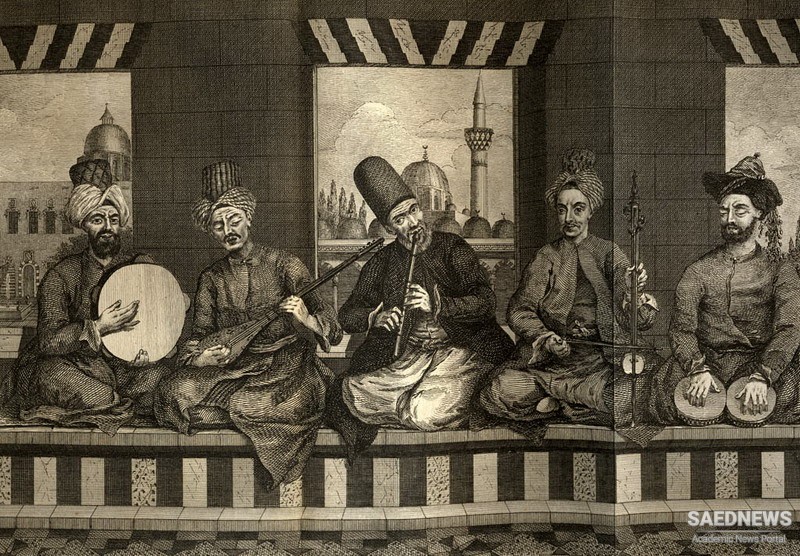The first of the leading Islamic music theorists, founder of the school of "philosopher scientists," is the Arab al-Kindi (ca. 801-866). Only four of his seven reported treatises have survived, and one of these contains the first musical notation found in Arab sources. Al-Farabi, known in Europe as Alpharabius, was born at Wasij, Faiab, in the province of Transoxiana (now the area east of theCaspian Sea in the Soviet Union). He completed his studies in Baghdad and resided in Aleppo from 941 until his death in 950. Like many philosophers of the time, al-Farabi lived the life of a Sufi. His writings cover many fields of thought, including politics ; and for his work in defining and systematizing the science of his day, he is called the "second master," Aristotle being considered the "first master." During the twelfth century, many works of al-Farabi, translated into Latin, were used in European universities. Among his several works on music, the greatest is the Kitab al musiqi al Kabir (Grand Book on Music) in which he discusses every known aspect of music. Unlike most philosophers of the period, who spent a good portion of their lives in the Abbasid capital, the greatest of them did not work at Baghdad but spent most of his life in Persia. Ibn Sina (Avicenna, 980-1037) was born in Central Asia, traveled across Khorassan in eastern Iran, and lived in Ray, which is near Tehran, and then in Esfahan. He died in the city of Hamadan in western Iran, where his tomb may be visited today. During his lifetime he was most famous as a doctor, but also spent time in political life. A recent study of Ibn Sina reports that his extant writings, which number close to two hundred fifty, deal with every subject known to the medieval world—logic, psychology, cosmology, metaphysics, meteorology, zoology, geology, and medicine. Comprising a very small part of this corpus, his writings on music are found in the al Shifa (Book of the Remedy) and the Najat (Book of Deliverance). Unlike al-Farabi, Ibn Sina was not a practical musician, and more information on the practice of eleventh-century music is contained in the writings of his contemporary Ibn Zaila (d. 1048) (Source: Classic Persian Music).


 Arrival of Islam and Formation of Literature on Music in Persia
Arrival of Islam and Formation of Literature on Music in Persia














































